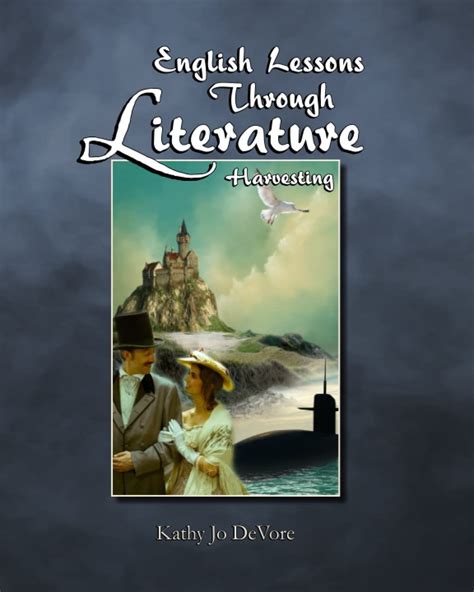In an era where language proficiency is increasingly crucial, literature offers a captivating avenue to enhance English skills. By delving into the rich tapestry of stories, students can immerse themselves in a world of words, unlocking the nuances and complexities of the English language.

Why English Lessons Through Literature?
- Improved Vocabulary: Literature exposes students to a vast array of words, expanding their vocabulary and enhancing their communication abilities.
- Enhanced Reading Comprehension: Reading literary texts fosters critical thinking skills, improves comprehension, and develops a deeper understanding of written language.
- Cultivated Writing Skills: Analyzing and interpreting literary works develops students’ writing ability by exposing them to diverse writing styles, sentence structures, and literary devices.
- Cultural Awareness: Literature offers a window into different cultures, fostering cross-cultural understanding and broadening students’ perspectives.
- Emotional Intelligence: Stories engage students’ emotions, fostering empathy, compassion, and a greater understanding of human nature.
How to Implement English Lessons Through Literature
- Select Engaging Texts: Choose literary works that resonate with students’ interests and challenge their reading abilities.
- Foster Class Discussions: Lead in-depth discussions on literary elements, themes, and characters, encouraging students to share their insights and perspectives.
- Incorporate Creative Activities: Engage students with creative activities such as book clubs, dramatic readings, and writing exercises to enhance their understanding and appreciation of literature.
- Use Technology: Utilize online resources and educational software to supplement lessons and provide students with additional learning opportunities.
- Assess Student Progress: Regularly assess student understanding through written assignments, oral presentations, and project-based tasks.
Benefits of English Lessons Through Literature
- Increased Literacy Rates: According to the National Center for Education Statistics, students who engage with literature have higher literacy rates than those who do not.
- Improved Academic Performance: Research indicates that exposure to literature enhances students’ performance in other academic areas, including math and science.
- Enhanced Career Prospects: Strong English skills are essential for success in various careers, including writing, journalism, and education.
- Lifelong Enrichment: Literature offers intellectual stimulation and can cultivate a lifelong passion for reading and learning.
- Global Citizenship: Literature promotes empathy and cultural awareness, empowering students to become informed and engaged global citizens.
Strategies for Effective English Lessons Through Literature
- Personalize the Experience: Tailor lessons to students’ interests and learning styles to create a more engaging and meaningful experience.
- Focus on Active Reading: Encourage students to actively engage with texts by annotating, questioning, and making connections.
- Use Visual Aids: Incorporate visual materials such as maps, timelines, and charts to enhance comprehension and retention.
- Provide Ongoing Feedback: Provide regular feedback to students on their progress, offering constructive criticism and encouragement.
- Celebrate Success: Acknowledge and celebrate students’ achievements to foster motivation and build confidence.
Using Literature to Teach Specific English Skills
Vocabulary Expansion:
- Identify Unfamiliar Words: Have students highlight unfamiliar words in texts and look up their meanings, creating a personal vocabulary list.
- Create Vocabulary Activities: Engage students in games such as word puzzles, charades, and vocabulary quizzes to reinforce new words.
Reading Comprehension:
- Analyze Literary Elements: Guide students in identifying plot, characterization, setting, and theme, fostering a deeper understanding of texts.
- Make Inferences and Draw Conclusions: Encourage students to draw inferences and make connections based on evidence from the text.
Writing Skills:
- Write Literary Analyses: Assign essay assignments that require students to analyze literary elements, themes, and characters.
- Use Literary Devices: Teach students to identify and use literary devices such as similes, metaphors, and imagery in their own writing.
Cultural Awareness:
- Explore Cultural Contexts: Discuss the historical, social, and cultural contexts in which literary works were written to foster cross-cultural understanding.
- Compare and Contrast Cultures: Guide students in comparing and contrasting different cultures through the lens of literature.
Conclusion
English lessons through literature offer a dynamic and engaging approach to language learning. By immersing students in a world of words, literature enhances their vocabulary, reading comprehension, writing skills, cultural awareness, and emotional intelligence. By implementing effective strategies and using a variety of engaging activities, educators can leverage the power of literature to nurture a love for language and empower students to communicate effectively in an increasingly globalized world.
